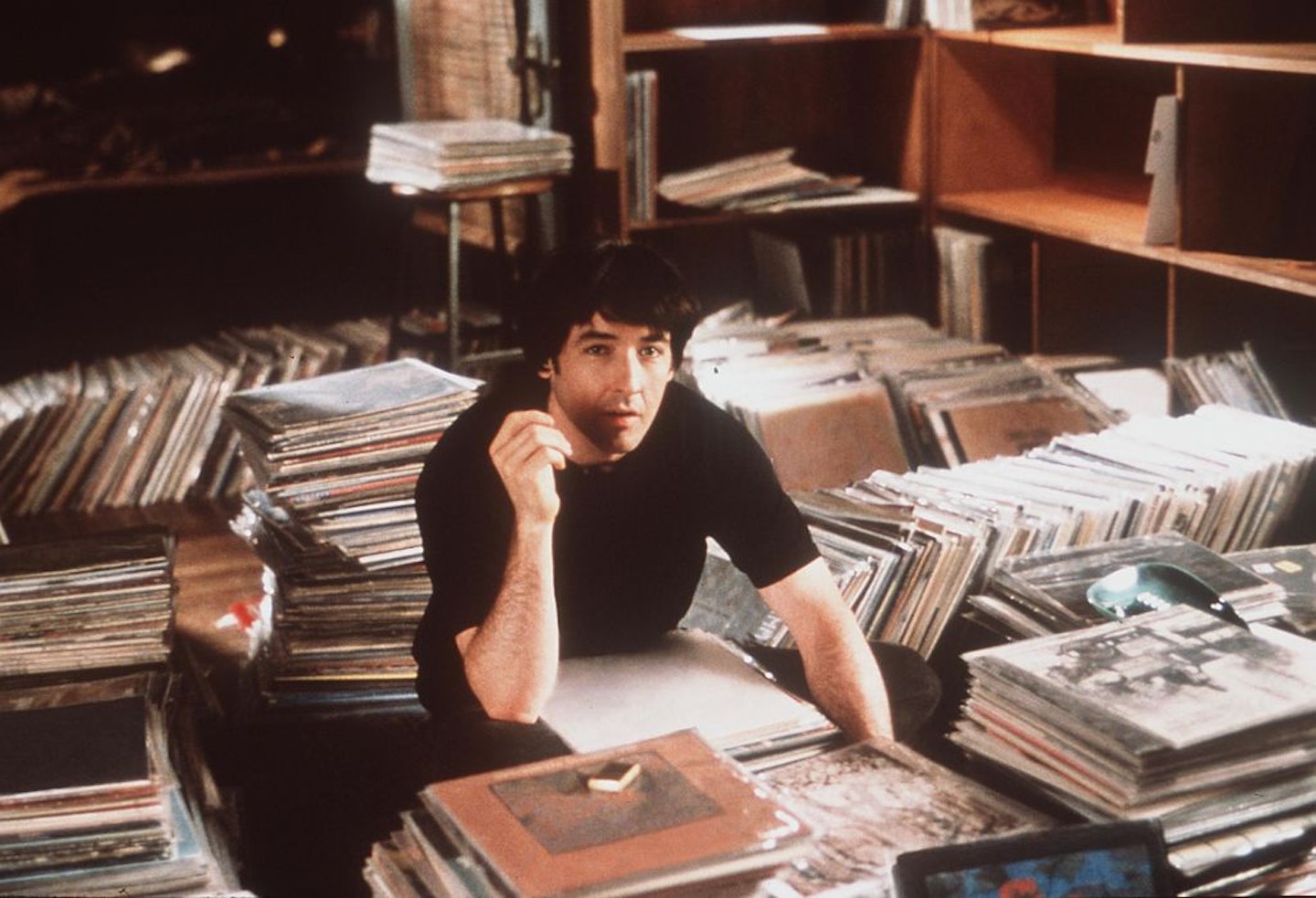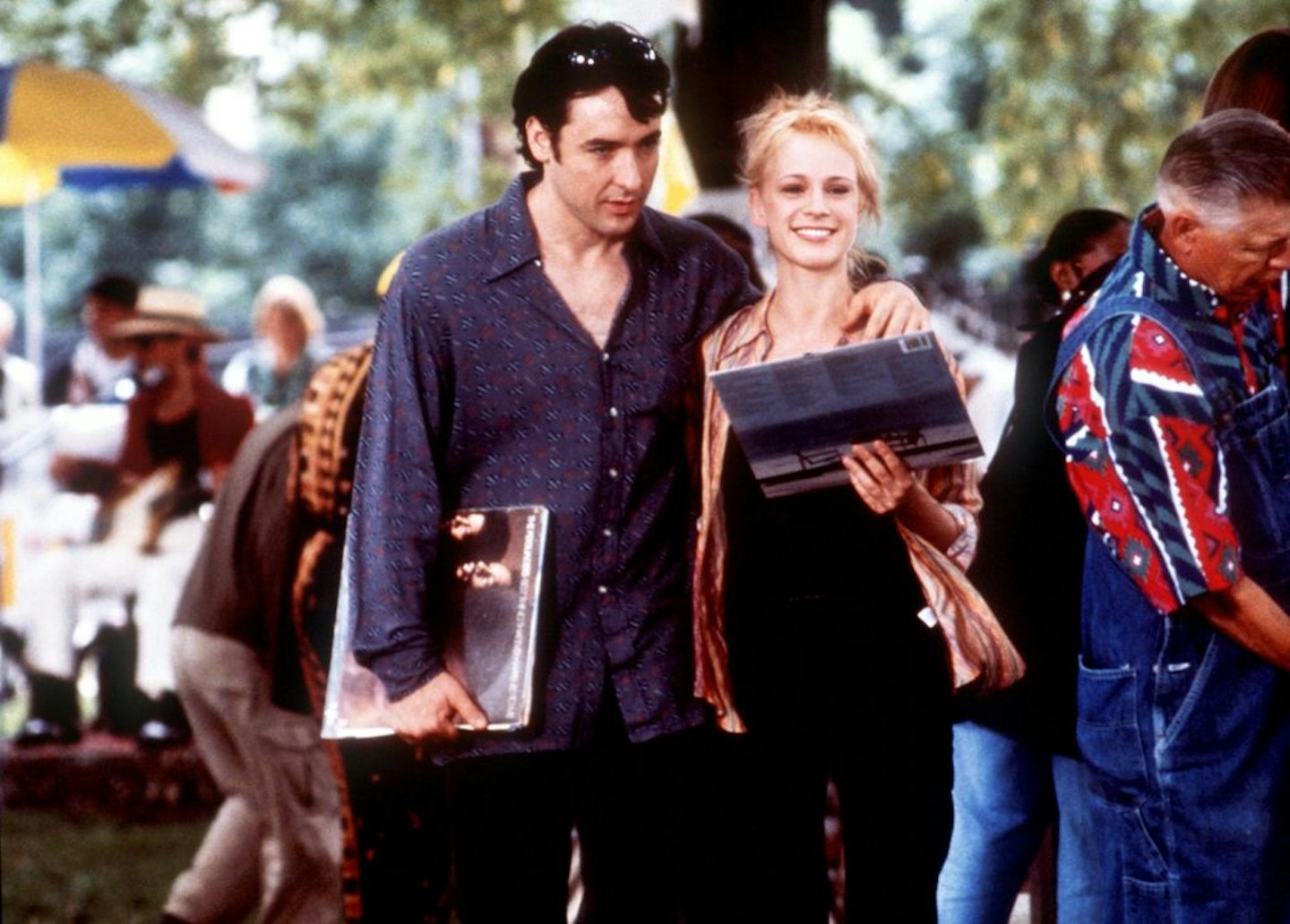They’re men who talk over you during the music round in a pub quiz. Who scoff if you’re not well versed in the historic feud between Nas and Jay-Z. The types who can sing the words to 'This Charming Man' by The Smiths and 'Death Kink' by Fontaines DC without a karaoke machine but can’t remember your friends’ names. All tireless iterations of Rob from High Fidelity, Nick Hornby’s seminal novel which was published 30 years ago and adapted for film in 2000.
After reading the book for the first time earlier this year, I was struck, nay floored, by Rob both as a character and a product of the male psyche. Rob is of the ‘victim of the universe’ disposition. A music obsessive running his own record store, Rob is distinctly unsatisfied with his lot in life. After being dumped by yet another girlfriend, the one he lived with who his mother would have loved to see him marry, Rob decides to visit the ghosts of girlfriends past to work out what he’s getting wrong. The trouble is Rob continuously fails to understand his part. Even when he admits to cheating on his girlfriend while she was pregnant and then not supporting her through her subsequent abortion, he’s got a justification stowed safely up his sleeve.

In Rob’s attempt to sift through his past loves, he exposes his thinking to the reader and/ or audience. We hear of girlfriends who he never took seriously because they weren’t impressive or good looking enough. We hear of girlfriends who were too frigid in high school. We even hear of a girlfriend who was so out of his league that he dumped her to beat her to the chase. ‘What am I gonna do now?’ Rob, played by John Cusack in the film, asks. ‘Just keep jumping from rock to rock for the rest of my life?’
He is exactly the type of man waiting on a manic, pixie dream girl to show up at his record store wanting daily sex and no commitment with just enough music knowledge to keep up with him, but not enough to make him feel emasculated.
What seems glaringly obvious when reading or watching High Fidelity through a modern lens is the correlation between Rob’s encyclopaedic obsession with music and his complete inability to express his emotions and form healthy, lasting relationships. Perhaps if he spent a little less time organising his record collection and a little more refining his communication skills, he would find a suitable rock on which to settle, or even a human being to jump from rock to rock with.
This is perhaps one of the many reasons Disney+ and Hulu launched a feminist High Fidelity remake in 2020 where Zoe Kravitz, whose mother Lisa Bonet was in the original film, reimagines the main character as Robyn. The show was cancelled after one season.
I wondered, 30 and 25 years after the book and film came out respectively, have things really changed? Do ‘90s nightmares like Rob still walk amongst us? And are the female versions as omnipresent?
‘Whenever I tried to get my ex-boyfriend to talk about his feelings he would say, “I’m not as complicated as you think I am,”’ explains Ellie*. ‘That was a hill he was willing to die on, but he was SO passionate about music. Hip Hop in particular – really confessional, emotionally charged rap was all he’d listen to. Which was funny because he went to public school.’
Anna* had a similar experience. ‘I was dating someone once and we’d go to gigs and stuff and he wouldn’t ever give his emotions away. Like, he would look bored and miserable and stand in the corner of the venue but afterwards say he loved it.’ While Emma* claims she dated someone who ‘could only express himself through writing music rather than listening to it’, but lo and behold, could never express himself with her.
As in High Fidelity, this behaviour might manifest itself through the romantic play of recommending an album or song or creating a playlist for the person they’re dating. ‘There’s something emotionally stirring about a well written song that would be difficult to convey with words alone,’ offers Rose*. ‘I think many guys realise this. It’s harder to convey exactly what you feel by simply stating it.’
Bobbie* agrees. He weighed in to say expressing yourself through music ‘takes the pressure off’, especially for men who find ‘expressing their feelings verbally difficult’. ‘It could also be that he is simply trying to seduce you,’ he admits.
This was true of Gemma’s* experience with a man she met on Hinge. ‘I was dating this guy for several months and he showed me a lot of new music and made it feel like it was a shared experience. Then I found out he had a girlfriend the whole time and had been playing her the same songs too, probably so he didn’t get us confused. After things ended, I saw them together at a concert we said we’d go to.’
Perhaps time doesn’t heal all wounds – and neither does music. Robs still exist in their droves in the modern dating scene. It's even a theme that cropped up in Lena Dunham’s new Netflix show, Too Much. Never mind the protagonist Jessica’s new boyfriend Felix, a tortured musician with dirty fingernails and a lot of baggage, who incidentally went to public school too, but there is one iconic scene where her ex-boyfriend Zev throws a tantrum because Pitchfork didn’t publish one of his reviews. Textbook Rob behaviour.

Of course, it shouldn’t be entirely ridiculed. It’s no secret that (a lot of) men struggle to express their emotions, especially when compared with women, and this behaviour is most likely a result of societal repression. If swathes of men grow up without knowing how to healthily express their emotions and fear vulnerability as a weakness, then it’s no wonder they might be prone to shutting the world out with their headphones on. But, from where I’m standing, this behaviour is hard to distinguish from the viral and now widely lambasted ‘main character syndrome’ that sees individuals relentlessly overestimate their own importance and minimise other people’s.
Men using music as an outlet to work through their mental health and emotions is positive only if it extends to their real-life relationships too. If you know the track list for Channel Orange like the back of your hand but struggle to tell your friends you love them or to text a girl back after a third date then, just like Rob, there’s still plenty of work to do. Luckily for him, it worked out ok in the end. Maybe if he stopped imagining his life as a music video it could have been even better.
The names used in this article have been changed.
